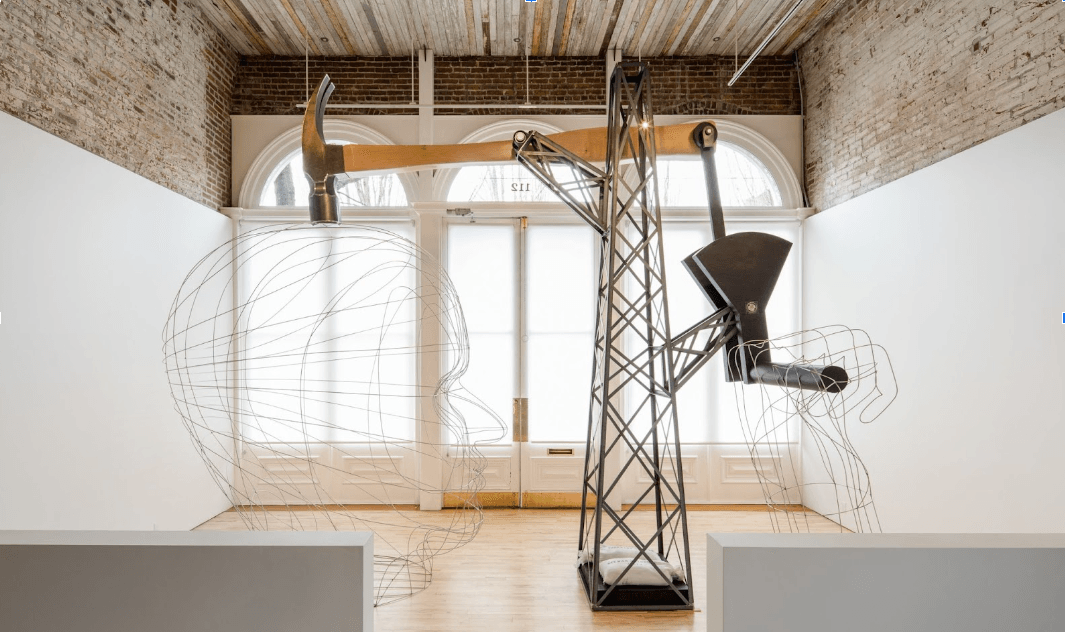The ability to support teams and groups to make sense of their worlds and coordinate around goals and projects has always been particularly important for organizations. And, with increasing levels of burnout and overwhelm influencing our capacity to be productive and agile, this kind of concern is being escalated into the C-suite.
Facilitative leadership has at its root a core concern for making things easy, and to support engagement that engenders collaboration, creativity and innovation.
And when we are in more challenging times – or in over our heads with a vast amount of information or complexity – the impact of a well-trained facilitative leader is immensely valuable.
Because overload squeezes the life out of our creativity and depth, learning how to better sense and navigate meetings to optimize for psychological safety and creativity is essential.
Realizing our human limitations is important, as is the understanding that this is not a question of a lack of motivation or unwillingness, but an actual diminishing capacity and hard limit. It’s not only ineffective to try to push beyond the limits of people’s capacity, but also counterproductive to try to achieve more once ‘overload has joined the meeting’. The last thing you want to do is transform overload into overwhelm.
When you are the facilitative leader or meeting owner, one of the most important principles is to learn to keep your own head above water so that you can keep the conversation out of the weeds and help everyone stay clear and focused.
- First, be clear about your intention for the meeting or conversation. When your intention is clear you can always return to it as your north star to simplify and get back on track.
- Trust your inner experience. Draw upon your own interior experience, perceptions and somatic sensations to take a read on what is happening. Notice when your mind is getting dull, when you are becoming mentally taxed or checking out.
- With curiosity, bring that insight or best guess to your people and facilitate a shift.
For example, here are 5 interventions that you can make in the moment when you start to feel overloaded in meetings:
- Slow it down. It may sound obvious, but when we’re feeling overloaded, our tendency may be to speed up in response. Our nervous systems can get caught in overdrive….and we’re less able to recognize how compromised we are. If you notice yourself going into a fight/flight state, or perhaps a sudden fatigue engulfs you, this is a good signal to you that others in the group may be similarly challenged. This is the moment to pause, invite the group to join you in taking a breath or a break, and consciously slow down the conversation – even backing it up if necessary.
- Name it. Model transparency and self-awareness by sharing your experience. “I notice I’m feeling overloaded right now – how is everyone else doing?” Meetings are great opportunities to help transform culture, and in these moments when you care for your well-being and that of your co-collaborators, you are reinforcing psychological safety and modeling the kind of culture that values people and relationships.
- Prioritize: Perhaps you realize you’ve overpacked the meeting agenda and are now rushing to get through it, or feeling the pressure to make a decision before a deadline (No shame – we’ve been there!) While we all want to get things done, rushing through a conversation may actually take more time if it results in poor judgment or flawed decisions that need to be cleaned up afterwards. So it’s useful to revisit the agenda with the group with something like: “Given what else we have on our plates, I propose that we bookmark items 2, 4 and 5 for another time so we can really give our focused attention to this one topic today. How does that sound?
- Let go of some of the details: This may sound counterintuitive. Let go? Aren’t I supposed to be tracking everything so I can properly facilitate? In fact, the opposite may be true. While of course you’re paying attention to the content, the more you trust your ability to follow the essence of the conversation more than each detail, the more relaxed and resourceful you’ll be. Then you’ll have more capacity to attend to elements of the process that are ultimately more important than content. This includes polarities, the emotional tone, the power dynamics, as well as your own self-talk. And of course, having someone besides you to capture the main points to share afterwards with meeting participants can also be liberating to you as a facilitator (in other words – you don’t have to do it all!)
- Offer a recap: While offering regular recaps is one of the most valuable things a meeting facilitator can do to ground and orient the group process and flow, it’s especially true in moments when information and ideas are flying around the room. Recapping need not track every single point raised, but can be a high-level summary of the conversation so far: Something like – “So far we’ve been discussing X, and the main ideas that have come up today are A, B, and C. Have I got that right?”
- Change the structure: We tend to get overloaded during longer discussions involving different viewpoints. While dialogue is important and necessary, sometimes group wisdom can be better leveraged using other tools, such as voting, quick polls, or a well-formed question for participants to share ideas on sticky notes instead. Information and ideas captured and represented visually can help reveal alignment and patterns more quickly than discussions can.
What about you? We’d love to hear your comments about some of your favorite ways to mitigate information overload in your meetings.


